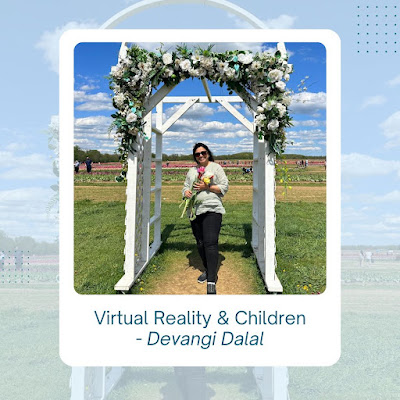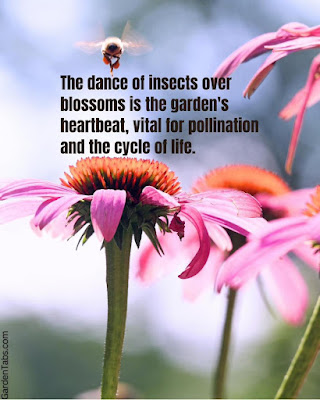|| VIRTUAL REALITY AND CHILDREN ||
|| VIRTUAL REALITY AND CHILDREN ||
Technology says "make me" and humans say "meet me." We are living in a virtual reality world, mesmerized by technology, though it is created by humans. Photography is virtual reality by capturing nature and humans on your smartphone, connecting you to the outer world and nature. However, when it becomes an illusion of competition and jealousy rather than creativity, it loses its value. Since the rise of social media, the real value of real people has been diminishing. There is a difference between the real beauty of any person and the beauty created using technology; when one loses this distinction, one loses the ability to visualize the real world as well. In the virtual world, people are losing the ability to differentiate between what is real and what is fake. On social media, it is rare to find a person who is the same in both the virtual and real worlds. Virtual reality is the new communication platform, allowing you to share creativity and adventure with friends and family, but real communication with emotions and feelings loses its value.
When I think about children, I think about their innocent smiles, and when I think about innocent smiles, I think about Lord Krishna in his childhood. If you have heard his stories, you know that Lord Krishna was like a prince; he had all the facilities of life yet he used to go into the jungle to help the cows graze. He wanted to be with the gopas and gopis and understand their emotions and feelings. He played melodious music to help people relax and feel happiness. His love for Radha was an unimaginable understanding. These were just a few of his actions to live a beautiful life, and at that time, there was no virtual platform, it was purity in life. Even after that, many emperors were born in our country who, to run their kingdoms beautifully, used to go to villages in disguise to feel the reality of people and their suffering. And now in virtual reality...??? Everyone, including small children, is living in a show rather than actual reality and understanding.
We talk to many parents, and especially after the COVID-19 calamity when we shifted from actual education to online education, parents started replacing children's own thinking and writing by pampering them and completing their work. Small kids who received too much pampering and spent all their time at home have become more attracted to virtual reality than actual reality. Instead of teaching them the difference between vegetables and fruits in reality, parents taught them on smartphones and iPads. Instead of singing lullabies to them, parents had them listen to poetry on phones and iPads, and now those babies love only virtual reality, not the actual. I have seen many children who can recognize a tomato shown on a smartphone but cannot identify it in real life.
Today, I visited a temple where a person set up a camera in front of the deity, and as soon as the aarti started, he began recording so that many devotees could watch from their homes. Hardly a few people were there to perform the aarti. God is worshiped as an idol, but now that idol is also worshiped in the virtual world. Are we going to receive blessings via a virtual platform only? God is not getting a chance to see how much devotion people can show to feel His presence. While virtual platforms allow many people to witness the darshan, the real feeling of being there in front of God has an immense sense of reality. When I do darshan, I don't feel the need to take pictures and send them to others because I believe devotees should come on their own and experience the amazing aura of God.
Recently, I visited Juhu Beach in the evening around 5 PM during vacation time, and I was amazed to see that hardly anyone was enjoying the sound of the waves. There were very few children playing on the seashore, and those who were there seemed to be from lower-income communities. Is this because people are too conscious about getting dirty with sand on the shore? Or is it because children prefer to use virtual gadgets and spend time playing on those? Perhaps parents don't have time to relax with their kids on the seashore and enjoy nature. Today's parents don't understand that using hands to build sandcastles on the seashore is better for eye-hand coordination than using fingers to play on an iPad. I have seen many mothers bringing a bucket of sand to attend special classes, but they won't take their kids to the beach.
For children, we are role models; the way we mold them influences their actions. We start by feeding them with artificial milk rather than with warmth and breast milk. When feeding, we give half our attention to our phones or the environment around us. We rely on helpers to feed the baby and leave them in others' care while pampering them with all the facilities. We educate them virtually or with the help of tutors or professional teachers, not allowing them to think or feel the world around them. We serve them fast food to save time and energy and leave them with gadgets that offer easy solutions. Relationships are seen on virtual platforms, whether decent or vulgar. If we don't value reality, how will our children learn to value it?
Today's trend includes artificial hair with colors, fake and styled nails, food with artificial colors, online exams, and education supported by money or online options. Even sexual relations are seen online, losing the value of intimate connections between two souls. Fashion often involves using animal skin or unethical styles, and we tend to follow the Western world, forming short-term relationships that constantly need change. Social media is good for creating awareness, but it doesn't promote awareness of the difference between virtual and actual reality. We have created a fake virtual reality around us. Sita in the Ramayana crossed the line, though she wasn't supposed to, and we know the tough time she endured because of it. Similarly, we humans must understand that we will have to face consequences if we continue relying on virtual reality instead of embracing real reality.
I was attending an international conference online where we had people from all around the world. We professionals joined a virtual platform to collaborate, communicate, work in unity, make a change, share, network, strengthen connections, plan advocacy, help with disabilities, and strengthen relationships. This shows that a virtual platform is useful for making connections, but that connection can only be felt with satisfaction when it's done in person. Just like the dance of insects over blossoms is the garden's heartbeat, vital for pollination and the cycle of life, our real-life interactions are essential for genuine connections and the true essence of living. We need to teach children that virtual reality is temporary and that real life is the true essence of life, which we can learn from the simple yet profound interactions in nature, like flowers being pollinated by insects.











Comments
Post a Comment